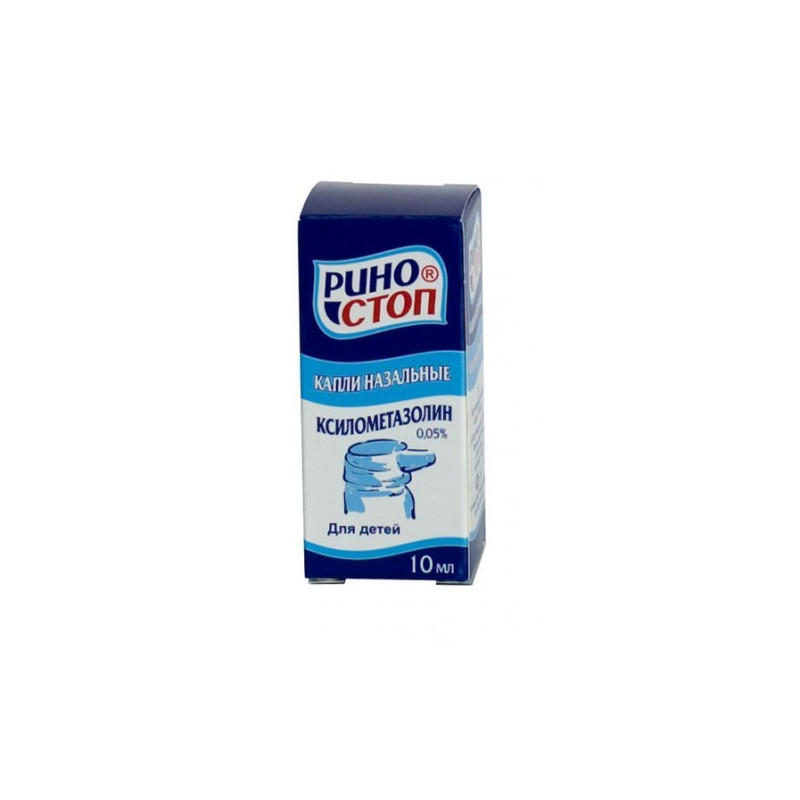



 All payments are encrypted via SSL
All payments are encrypted via SSL
 Full Refund if you haven't received your order
Full Refund if you haven't received your order
Rinostop
Rhinostop - nasal drops:
1 ml of drops contains xylometazoline (as hydrochloride) 0.0005 and 0.001 g; in vials with a cap-dropper or dropper bottles of 10 ml.
Rhinostop is a vasoconstrictor for local use in ENT practice. Alpha adrenomimetic. When applied to the mucous membranes causes vasoconstriction, as a result, local hyperemia and edema are reduced. When rhinitis facilitates nasal breathing.
Acute allergic rhinitis, sinusitis, pollinosis, otitis media (to reduce swelling of the nasopharyngeal mucosa), preparing the patient for diagnostic procedures in the nasal passages.
Angle-closure glaucoma, atrophic rhinitis, arterial hypertension, tachycardia, marked atherosclerosis, hyperthyroidism, surgical interventions on the meninges (in history), increased sensitivity to xylometazoline.
During pregnancy and lactation, Rhinostop should be used only after a thorough assessment of the risk-benefit ratio for the mother and the fetus; the recommended doses should not be exceeded.
With frequent and / or long-term use: irritation of the mucous membranes, burning, tingling, sneezing, dry nasal mucosa, hypersecretion.
Rarely: swelling of the nasal mucosa (usually with prolonged use), heartbeat, heart rhythm disturbances, increased blood pressure, headache, vomiting, sleep disorders, visual disturbances.
With prolonged use in high doses: depressive state.
Intranasal, in each nasal passage, for adults and children over 6 years old - 1-2 drops (0.1% solution) 2-3 times a day, for children from 2 to 6 years old - 1-2 drops (0.05% solution) 1-2 times a day. Rhinostop should be used no more than 3 times per day for 3-5 days (with longer use, a break for 3-5 days is necessary).
In a dry, dark place at a temperature of no higher than 25 ° C. Shelf life - 3 years.
